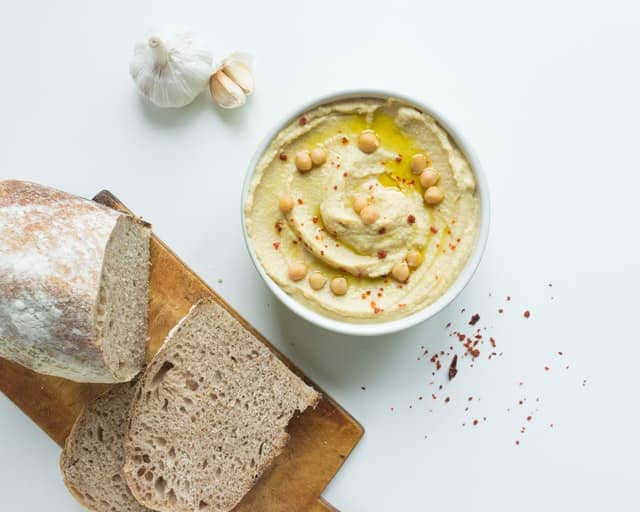When you switch to a new diet, learning what foods go well with your everyday diet becomes important to get the daily nutrients. Hummus is a popular spread and dip that goes with a lot of dishes. However, a lot of people going plant-based wonder whether they can still indulge in hummus.
So, is hummus plant based? Yes, hummus is plant based. Hummus is basically a spread made using chickpeas and mostly free of animal products. However, there are some manufacturers selling flavored hummus containing dairy, making it far from being plant-based.

In this article, let us try to understand what hummus contains and why it is suitable for a plant-based diet.
Why Hummus Is Plant Based?
Classic hummus is prepared using a few simple ingredients which are all plant-based. It does not demand the use of animal products like meat or dairy and can be easily classified as a plant-based food.
However, there are some manufacturers selling flavored hummus containing dairy, making it far from being plant-based. It is important to check the ingredients list before buying the product to make sure it fits your plant-based diet.
What Are The Main Ingredients in Hummus?
Hummus is a traditional spread from the Middle East that works with vegetables, wraps, salads and sandwiches. Its primary ingredient is chickpeas or garbanzo beans combined with tahini which is made out of sesame seeds. These ingredients are blended into a nice consistency that works as a spread or dip.
Seasonings like garlic, lemon juice, salt and olive oil are often added to hummus for flavor. While these simple ingredients make the basic hummus, it can be made in a number of variations with additions like avocado, onion, pepper, black beans and much more. Hummus remains a plant-based recipe unless any dairy or meat product is added to it.
Hummus Nutrition
Hummus is one of those foods that are both nutritious and delicious. Made primarily out of beans, it is loaded with plant-based protein that helps you stay full, build muscle mass and get your daily protein requirement from the diet.
Chickpeas also ensure that hummus provides a good amount of dietary fiber. This means it helps improve digestion, manage cholesterol and blood sugar levels and benefit the health in several other ways. The healthy fats and fiber in this food help you curb appetite and lose weight.
Here’s a quick breakdown of the nutritional value of a 3.5 ounce serving of hummus:
- Calories – 175
- Carbohydrates – 20g
- Protein – 5g
- Total fats – 8.5g
- Fiber – 4g
Apart from this, hummus is rich in essential vitamins and minerals including vitamin C, folate, iron, copper, zinc, potassium, calcium, vitamin B6 and thiamin. When you are on a plant-based diet, foods like hummus make sure you are getting sufficient protein to keep your muscles fueled.
Conclusion
So, can you include hummus in your plant-based diet? Absolutely! Not only does hummus make a delicious spread and dip, but is also a nutritious food that provides several health benefits and much of the daily nutrient requirement.
Make sure you buy hummus from a high-quality brand to avoid any additives and preservatives. Also, try to pair it with plant-based recipes that go well with your diet.
Most Popular Questions: